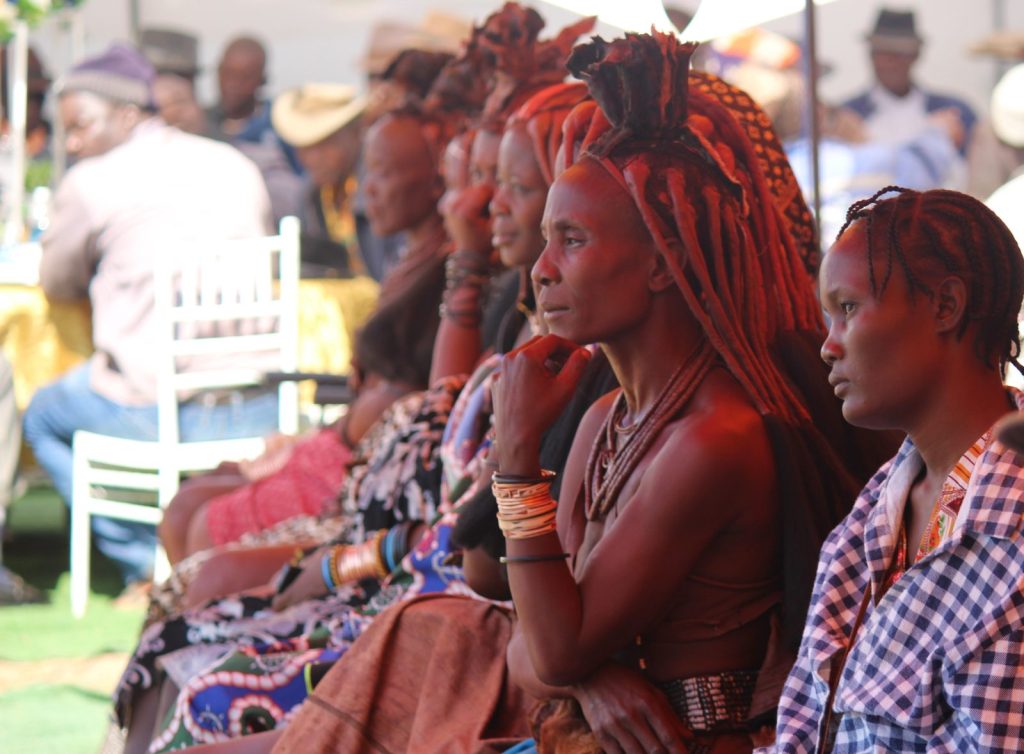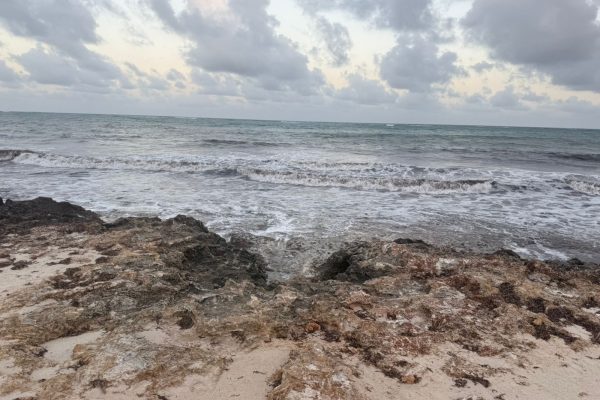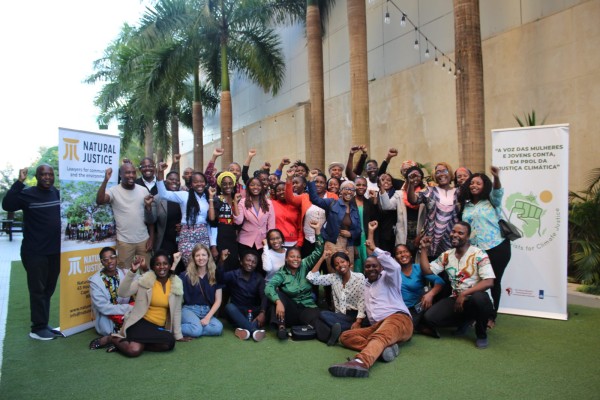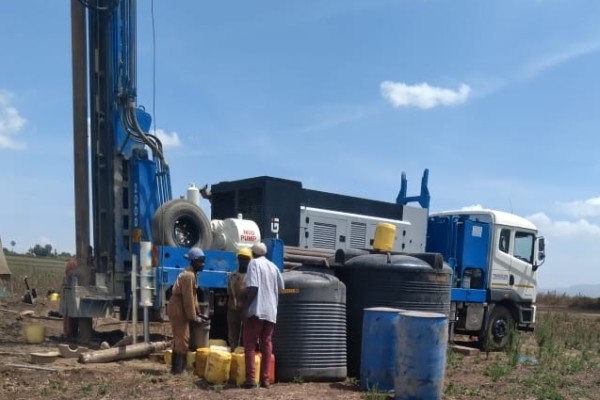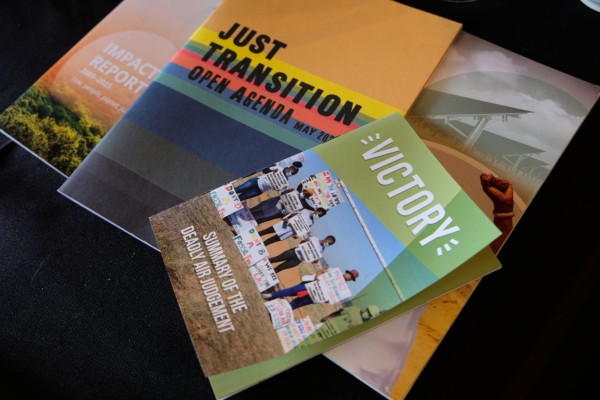The Process of developing the Biocultural Community Protocol of the OvaHerero of the Kaokoland in Namibia and Angola
For centuries, Indigenous peoples have depended on the natural environment to sustain their livelihoods. Knowledge of plants and animals, as well as the performance of certain traditions and practices, have been important in the safeguarding of species over millennia. For Indigenous peoples, handing down traditional knowledge from generation to generation has been recognised as key to sustaining the natural world.
The OvaHerero indigenous people of Kaokoland (now known as Kunene Region and Cunene Province) in Namibia and Angola are semi-nomadic pastoralists who rely on the land and natural environment to sustain their way of life. The environment they depend on is harsh and dry, and their knowledge of water resources and water preservation practices have been crucial for their continued survival.
Due to infrastructure developments, modernisation and climate change, the OvaHerero could lose their traditional knowledge and cultural practices, and the changing environment could threaten their way of life. Therefore, they sought to document their traditional knowledge, culture and sustainable practices in a Biocultural Community Protocol (BCP) which can be used to affirm and protect their rights.
BCPs offer valuable insights into traditional and cultural systems from the viewpoints of Indigenous communities. They provide essential information often missing from formal scientific research, which typically focuses on data and analysis but overlooks local realities and environmental conservation challenges.
BCPs are crucial for safeguarding traditional knowledge and ensuring equitable access and benefit-sharing arrangements, as required by the Nagoya Protocol. They may become particularly significant for sustainability and advocacy, especially if global interest in the adaptive traits of Indigenous peoples continues to increase.
Developing BCPs is a time-consuming process that requires deep consultative and participatory approaches. Training and capacity building of the community are required. This process can take many years.
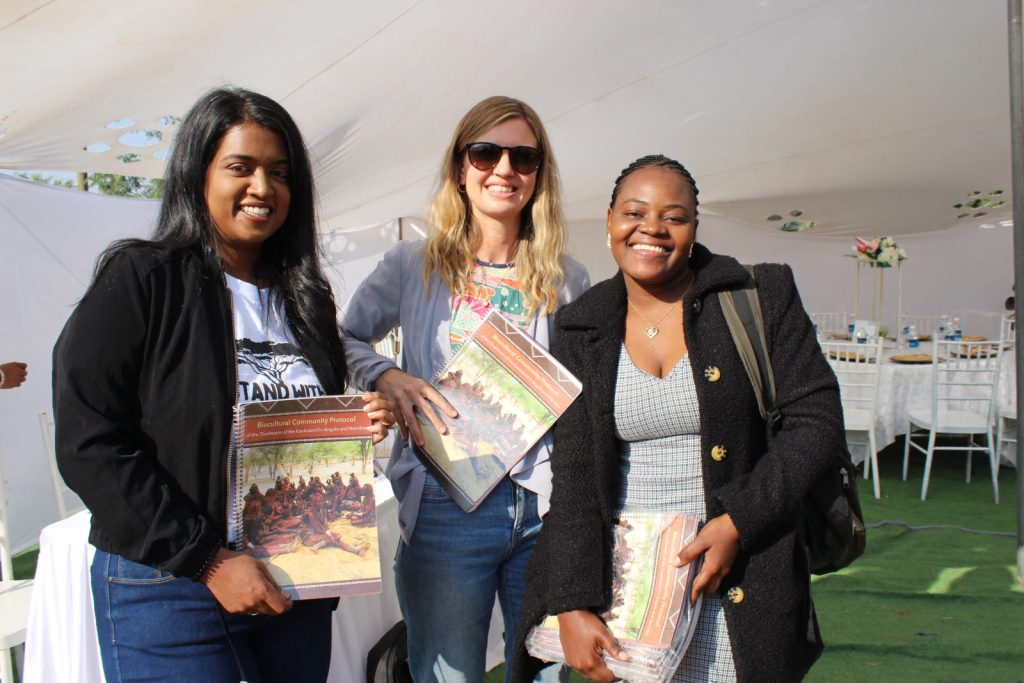
Phase 1 – Community Buy in and Agreement
The first step in creating the BCP is securing community agreement. The OvaHerero BCP was proposed to the community by International Rivers and Earthlife Namibia in February 2020, but the process did not continue due to COVID lockdowns. The community later reached agreement to develop their own BCP at a meeting with over 40 community members in Opuwo, North-Western Namibia, in March 2022. This was achieved with the assistance of International Rivers and Natural Justice who provided funding and training support to community representatives.
It’s important to make sure that during these processes, many diverse voices are heard in the community, including those with opposing or divergent political views, women and youth, not just traditional leadership. The community has members in two countries, Namibia and Angola and communities from both countries were included.
When the community agreed on the process, they selected a working committee of seven trusted members from different villages within the community to represent them and help make decisions with regards to the process.
Phase 2 – Training and capacity building and understanding the scope of the territory
In August 2022, as a second step in the process, Natural Justice and International Rivers met with the seven committee members in Windhoek along with two researchers who were recommended by the committee and came from within the OvaHerero community to conduct baseline research for the BCP. During this meeting, the organisations trained the committee and researchers, introducing tools for conducting research and developing a suitable framework for the BCP.
It was also essential for the supporting organisations to understand the region and assist the researchers in formulating the research methodology for information collection. The committee played a crucial role in informing traditional leaders from the different villages about the researchers’ visits and ensuring that each community granted consent for the research.

Phase 3 – Conducting research and gathering information
Once the researchers were equipped with the tools for conducting research, they were contracted to conduct the research. This was a six-month process of gathering information from the community. They visited 26 villages in Namibia, four OvaHerero Living Museums in Namibia, and four villages in Angola. After the six months of primary research, they developed the first draft of the BCP. This draft, guided by Natural Justice and International Rivers, marked the beginning of the validation process.
Phase 4 – Community validation
Community validation is crucial to ensure that the information and perspectives represented in the BCP process are accurately reflected in the written document.
Validation fosters trust between the community, researchers, and other stakeholders, as it demonstrates that community input is valued and integrated, building a collaborative relationship based on mutual respect.
After the two supporting organisations guided the first draft, they met with 65 members of the community in April 2023 in Opuwo to go through the first draft with them. The community members consisted of elders, traditional leaders, women, men and youth. At this meeting there was a mapping exercise where communities could plot their settlements, sacred sites, rivers, mountains among other important landmarks on a big map of the Kunene Region and Cunene Province. This graphic depiction is important, so they visually indicate their natural and cultural resources. After this first validation meeting the researchers had to develop a second draft incorporating the additional information and edits obtained from this gathering within six months.
The two supporting organisations once again guided the second draft which had to go through another community validation process. This took place in October 2023. The organisations and researchers met with 70 community members again in Opuwo, to validate the information in the second draft of the BCP. During this process an inventory of Intangible Cultural Heritage of the community was documented. This documents the knowledge of cultural manifestations that is transmitted across generations and is important for the protection and safeguarding of the knowledge.
After this validation process, a third draft was developed within three months. The supporting organisations and researchers met in Cape Town, South Africa in January 2024 for an in-depth review of the document. After this meeting, a fourth draft was developed with minimal editorial changes.
Following the fourth draft, the supporting organisations met with the committee and researchers in Windhoek, Namibia in April 2024 for the last validation meeting to validate the annexures which comprised of the Intangible Cultural Heritage Inventory table, Biodiversity register and map. This meeting served to also plan for the launch which would take place in June 2024.
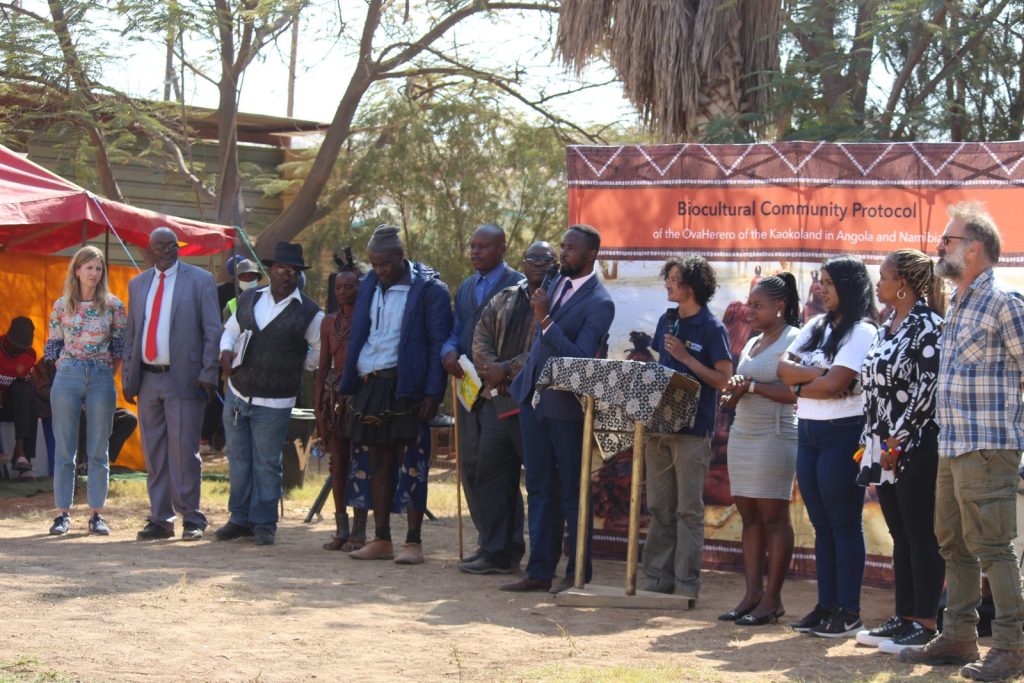
Phase 5 – Development and Launch of the document
The researchers produced a final draft of the BCP, shortly after the final validation meeting, which then underwent careful editing.
A key feature of the BCP was the emphasis on preserving the native language of the OvaHerero people, OtjiHerero. Therefore, translating the BCP into OtjiHerero was crucial, as the majority of the OvaHerero community do not speak English.
The BCP of the OvaHerero of Kaokoland in Namibia and Angola was published and officially launched on 11 June 2024, in Opuwo and on 13 June in Windhoek, Namibia, in the presence of the community, media, and local stakeholders.
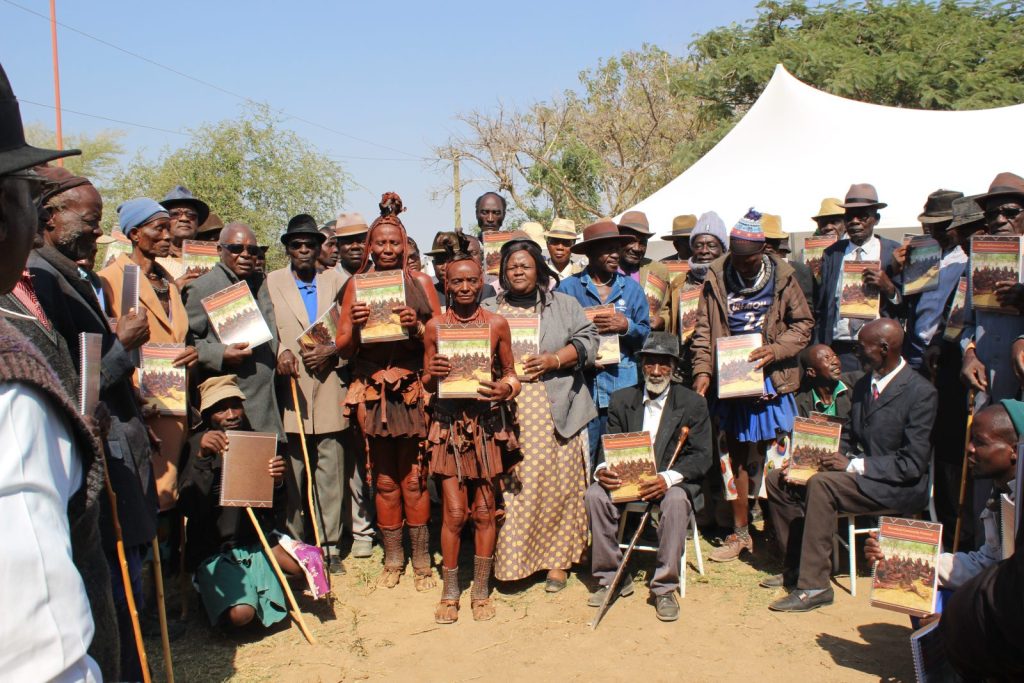
The BCP was well received by the community, who were pleased to finally have a document about them that they could call their own.
The BCP, excluding initial community consultations, took a total of two years to complete. During those two years, there were many challenges, however through the determination and hard work of the community, they were able to overcome those challenges.
The mission of the OvaHerero people is to “live on our territory in Namibia and Angola with recognised rights to the land, protection of our Indigenous knowledge, and uphold our Indigenous way of life, in harmony with nature.”
These are values that are essential to recognise, respect and preserve. Therefore, BCPs and the documentation process, has an important role to play in strengthening the rights of Indigenous peoples today and for future generations. It is not only the document itself that provides credibility and respect for the community, but also the process through which they were able to input into the document – a process which is empowering.
Phase 6: Using the BCP
Completing the BCP is just the beginning of the journey. Raising awareness within the community will ensure that everyone fully understands the protocol and supports its implementation. The BCP also serves as a valuable tool for guiding internal consultations constructively, ensuring alignment with community values.
When engaging and negotiating with external parties, the BCP is a critical resource. It should be the starting point for anyone wishing to interact with the community – to better understand the OvaHerero and guiding research, tourism and development activities on their territories. The OvaHerero BCP outlines how the community will give free, prior, and informed consent on all decisions affecting them, advocating for this to be respected. Where appropriate, support organizations should collaborate with the community to ensure the BCP is always upheld.
Read more about the launch here.

